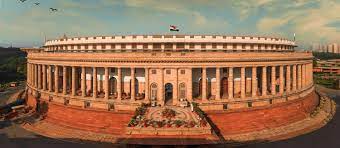LEGISLATION REVIEW ON CONTEMPT OF COURT ACT, 1971 (ACT NO. 70 OF 1971)
Author – MUDRAGADA ISWARYA LAKSHMI
STUDENT AT ICFAI LAW SCHOOL, HYDERABAD
Best Citation – MUDRAGADA ISWARYA LAKSHMI, LEGISLATION REVIEW ON CONTEMPT OF COURT ACT, 1971, INDIAN LAW REPORTER, 1 (1) of 2023, Pg. 06-09, ISBN – 978-81-961120-3-5.
ABSTRACT
The Contempt of Court Act, 1971 is a law in India that defines and punishes acts that amount to contempt of court. The act provides for the punishment of both civil and criminal contempt of court. Civil contempt refers to willful disobedience of any judgment, decree, direction, order, writ, or other processes of a court or willful breach of an undertaking given to a court. Criminal contempt refers to any act that scandalizes or lowers the authority of the court, interferes with the administration of justice, or obstructs the process of the court. The act defines the powers of the court to punish contempt and lays down the procedure for initiating and conducting contempt proceedings. It also sets out the defenses that can be raised in a contempt proceeding and the limitations on the power of the court to punish contempt.
The Contempt of Court Act, 1971 aims to protect the authority and dignity of the courts and ensure the proper functioning of the judicial system. It serves as a deterrent to those who may otherwise attempt to interfere with the administration of justice or undermine the authority of the courts. The Contempt of Courts Act, 1971 originally did not recognize truth as a defense against charges of contempt of court. However, in 2006, an amendment was brought in to Section 13 of the Act, which now allows truth as one of the defense, subject to the condition that it is in the public interest and bona-fide in nature.
Keywords: Contempt of court, willful disobedience, civil contempt of court, Criminal contempt of court, contempt proceedings, Courts.
RECENT PUBLICATION FROM INSTITUTE OF LEGAL EDUCATION (MAY BE USED FOR REFERENCE/BIBLIOGRAPHY)
- Prasanna, S., et al. EMPOWERMENT AND EQUALITY NAVIGATING HUMAN RIGHTS LAW IN A COMPLEX WORLD. Institute of Legal Education, 2023. Access Here – https://scholar.google.com/scholar?cluster=8073531615629308019
- PRASANNA, S., and P. LAVANYA. “NAVIGATING THE MAZE: UNDERSTANDING KEY DATA PRIVACY AND SECURITY LAWS WORLDWIDE.” Access Here – https://scholar.google.com/scholar?cluster=14275456488561985070
- Gopala, Bhagyamma. “A constitutional imperative for gender equality and dignity: a discourse on menstrual leave in India.” ILE Constitutional Review 2 (2023). Access Here – https://scholar.google.com/scholar?cluster=14542656713228494739
- Tulsyan, Aryan. “Cannabis and the constitution:’High time for amending the NDPS act?.” ILE Human Rights Law Review 1.1 (2022). Access Here – https://scholar.google.com/scholar?cluster=1620071720487117886
- SINGH, UJJWAL. “CUSTODIAL VIOLENCE IN MODERN INDIA.” Journal of the Indian Law Institute 36.3 (1994). Access Here – https://scholar.google.com/scholar?cluster=4641833531038214506
- Azizfan, Sayed Malik Shah. “A BLUEPRINT FOR SUSTAINABLE POVERTY ALLEVIATION AND UNEMPLOYMENT MITIGATION: SYNTHESIZING SOCIOECONOMIC TRANSFORMATION IN AFGHANISTAN.” Access Here – https://scholar.google.com/scholar?cluster=17585185253194219063
- PRASANNA, S., and P. LAVANYA. “PROTECTING PERSONAL DATA: A COMPREHENSIVE GUIDE TO DATA PRIVACY REGULATION.” Access Here – https://scholar.google.com/scholar?cluster=2736636049548842283
- PRASANNA, S., and P. LAVANYA. “NAVIGATING THE MAZE: UNDERSTANDING KEY DATA PRIVACY AND SECURITY LAWS WORLDWIDE.”. Access here – https://scholar.google.com/scholar?cluster=14275456488561985070
- PRASANNA, S., and P. LAVANYA. “DATA PRIVACY IN THE DIGITAL AGE: COMPLIANCE WITH INDIAN LAWS.”. Access Here – https://scholar.google.com/scholar?cluster=2482682029322735326
- SRIVASTAVA, AVANTIKA. “A CRITICAL ANALYSIS OF LAWS PERTAINING TO RAPE AND FALSE MARRIAGE PROMISES.” Access Here – https://scholar.google.com/scholar?cluster=15122870610367691037
- Abdurahim Zai, Mohammad Edris, and Naseebullah Amani. “The Impact of Green Supply Chain Management on Climate Change: Cursory Glance on the Food Industry.” International Environmental Legal Research Journal 1.1 (2023): 150-161. Access Here – https://scholar.google.com/scholar?cluster=9866710733130422173
- JAYAL, HARDIK, and SHREYA SINGH THAKUR. “A COMPREHENSIVE ANALYSIS REGARDING THE PRACTICE OF BONDED LABOUR IN INDIA.” Access Here – https://scholar.google.com/scholar?cluster=16247068770278814586
